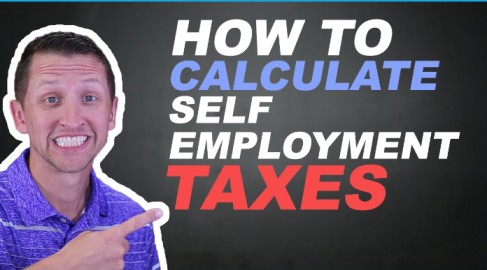NEWS
How to use the calculator for self-employed tax deductions

Small business owners, independent contractors, freelancers, gig workers, and anyone whose net income is over $400 must pay self-employment tax. The tax rate for self-employed individuals is 15.3% on net profit. Estimate your tax refund or payment with the finest self-employment deductions calculator. This program takes advantage of the most recent information provided by the IRS, including yearly updates and modifications brought on by tax reform. Consequently, the self-employed tax deductions calculator is used in the following listings.
Farm’s net profit or loss
This is your net farm income or loss. Included should be any money from agricultural partnerships as well as the net farm gain or loss from Timetable F. Please be advised that if your gross farm income is $2,400 or less and your net farm income is $1,733 or less, there is a Farm Optional Method for figuring out income subject to self-employment taxes. If you qualify, using this alternate method can result in a little lower income that is subject to self-employment taxes. This calculation makes no assumptions regarding the Farm Optional Method. For more information, see IRS Schedule SE Part II, Optional Ways to Figure Net Earnings.
Employer’s income
Enter the total of your wages, including any tips you may have received and the amount from which Social Security taxes have been deducted. Your income and tips should be subject to a 6.2% Social Security deduction, as well as an additional 6.2% employer contribution that does not show up on your paycheck. Up to $147,000 in income is subject to the 12.4% tax paid for the Social Security portion of self-employment taxes in 2022. If your combined salary, tips, and self-employment income exceeds $147,000, only the portion of your self-employment income beyond that amount is liable to Social Security taxes. If your work salary and tips combined equal more than $147,000 in 2022, you won’t be required to pay any more FICA taxes for the year.
Operating Net Profit / Loss
Your net profit from corporations and partnerships is shown here. This information is contained in the IRS Schedule C for sole proprietorships and the IRS Schedule K-1 for partnerships. Agricultural associations that should be included in the net farm revenue or loss should not be included. As a pastor, you will typically have to pay self-employment taxes on the compensation you receive for your services. The price of renting a home, as well as the lodging and food that you, your spouse, and your family receive, are also included.
Instead of including Church employee remuneration in your net business income or loss, include payment for religious services delivered. Clergy and members of religious orders are excluded from a number of rules regarding the payment of self-employment taxes. To determine how these rules could apply to your specific situation, please consult the IRS’ thorough self-employment tax guidelines.
Net pay for employees of churches
The total amount of your church’s income that is deductible for self-employment is this. Like all other self-employment income, this amount is calculated by multiplying your church employee income by 92.35 percent. If this income is less than $100, you don’t have to pay self-employment taxes on it.
Income from Self Employment
This is the total amount of your self-employment income that is taxable. You can calculate this by multiplying the net farm income or loss by 92.35 percent, as well as the net business income or loss. This is done in order to deduct from your net income the entire employment tax that, if you were employed, an employer would have been responsible for paying. If the outcome is less than $400, then you owe no self-employment tax on this income. Plus, you’ll most likely need to make estimated payments if you expect to owe $1,000 or more in taxes.
Final Reflections
The Self-Employed Tax Deductions Calculator will help you locate tax deductions that are unique to your company. This calculator will show you self-employed tax deductions that can help you save money on your taxes, whether you work as a dog walker or a content developer and can help you avoid an IRS audit notice . You can select your precise self-employed industry using the calculator. Remember that you can always file a tax filing extension if you need more time to gather your tax information.










